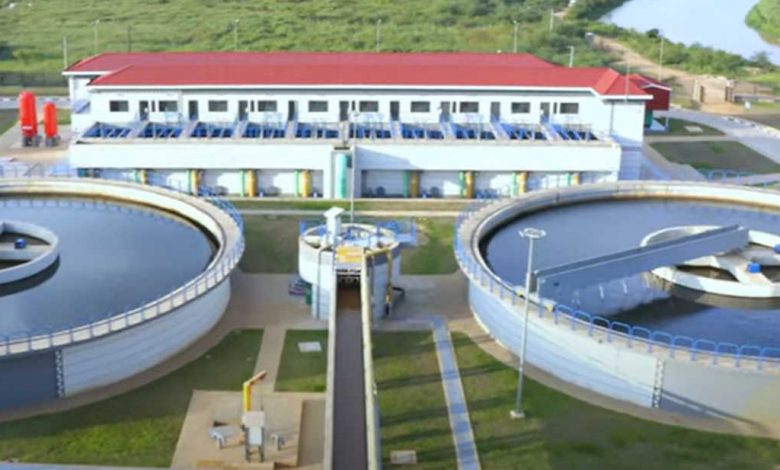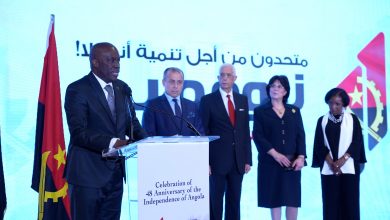Gender in focus: how technology and education can transform the water sector and improve the lives of women and girls | African Development Bank

Diplomat.Today
The African Development Bank
2023-03-28 00:00:00
——————————————-
Looking back on my journey, my educational choices as a woman have been driven by curiosity and a desire to solve problems. Studying civil engineering and environmental technology has shaped my creative thinking, strengthened my intellectual development, given me the skills to design things that make our world a better place to live in and protect people from adverse environmental impacts. My journey continues and I am still learning.
Technology is no longer the mystery it once was. Adoption of technology has been rapid in all societies and industries and technology is now embedded in almost all aspects of our lives. With this acceptance comes a better understanding of what technology can do, and its ability to transform our world.
In the water sector in particular, technology is transforming and improving processes that are essential to ensuring universal access to safe water and sanitation for all. As an engineer with more than a decade of industry experience, I have seen firsthand how technology can provide solutions to persistent challenges such as gender inequality, which has a major impact on women and girls.
The intersection of technology, water and sanitation for women and girls
Around the world, women and girls are disproportionately affected by lack of or poor access to water and sanitation. This affects their health with a higher risk of infections and death; it also affects their safety and dignity and reduces their right to education and economic opportunities.
In many African countries, girls spend time fetching water for the family and miss classes or cannot go to school as a result. According to UNICEF, girls and women worldwide spend an average of 200 million hours a day fetching water. Lack of inadequate sanitation also makes it difficult for girls to attend school during their menstruation, affecting their right to education.
Amandine Umukesha at the construction site of a 100 m3 water storage facility under the Rwandan Sustainable Water Supply and Sanitation Program
By using all possible means – including the use of technology – women and girls go a long way towards the fundamental right of access to water and sanitation.
When women and girls have access to water and sanitation, their safety is guaranteed, their health improves, their self-confidence is boosted and there is an increase in personal and economic development, giving them a full role in society. Girls can also go to school confidently and undisturbed and reach their full potential.
The African Development Bank’s Rwanda Sustainable Water Supply and Sanitation program, which financed the construction of water supply systems and sanitation, is an example of this. The program provided approximately 10,000 girls in public schools in 14 rural districts with access to water, handwashing facilities and gender-sensitive latrines.
We must understand that no tangible development can be achieved if we leave women and girls behind or make them vulnerable. To achieve the desired developments at all levels, technological and innovative solutions that respond to the needs of women and girls must be part of the solution mix. This is evidenced by the impact of the Regional Information and Communication Technologies Center of Excellence Project, funded by the African Development Bank, where a young woman, Victoria Munguti, a graduate of Carnegie Mellon University-Africa (CMU) in Kigali, was able to to create “Hepta Analytics”, a start-up focused on big data analytics and software development to help business growth.
Technology can improve women’s lived experiences and women too can use technology to change the world.
Transforming the water sector through technology
There is no doubt about the place of technology in our world today. In the water sector, it is not only used in day-to-day activities such as planning and information gathering, but it is also faster, improves analysis accuracy, offers advanced designs and enables innovative water management solutions. Particularly in utilities, technology optimizes water supply, improves efficiency and effectiveness and saves costs.
In the development of water infrastructure, the African Development Bank promotes the use of contemporary technology to ensure quality, efficiency and sustainability. Recently, the Bank financed projects in Rwanda where the Kigali Bulk Water Treatment Plant and the Gihira Water Treatment Plant respectively introduced the Supervisory Control and Data Acquisition (SCADA) system. Operated by a young lady at the water treatment plant of Kigali’s Water and Sanitation Corporation, this system helped monitor and efficiently address problems in water treatment plants and distribution networks to support key personnel and help them see and address problems in real time.
In my work as a chief water management and development officer, I have also used specific technology applications to process large amounts of data and make critical business decisions based on insights from technology sources, reducing the possibility of errors caused by manual actions.
For women who want to change the world

Amandine Umukesha’s graduation from Oklahoma Christian University
Many girls want to be much more than their gender. They have dreams, skills and talents to develop, and like me, they may also want to use their skills and talents to make the world a better place.
We must continue to make progress towards equality and ensure adequate representation and opportunity. We need more opportunities for girls and more women to be positive role models who support those behind them, lead by example and stimulate girls’ curiosity to expand their interests. A network of peers and mentors and providing accessible learning opportunities are also important.
About the author:
 Mrs. Amandine UMUKESHA is a civil engineer with a professional experience of 15 years dedicated to the water and sanitation sector. She holds a Master of Science in Engineering from Oklahoma Christian University – USA, and a BSc in Civil and Environmental Engineering from the Kigali Institute of Science and Technology – Rwanda. She currently works at the African Development Bank as Principal Water Resources Management and Development Officer where she mobilizes funds, supports business delivery, manages sector portfolios, provides loans and develops pipelines, and strengthens partnerships.
Mrs. Amandine UMUKESHA is a civil engineer with a professional experience of 15 years dedicated to the water and sanitation sector. She holds a Master of Science in Engineering from Oklahoma Christian University – USA, and a BSc in Civil and Environmental Engineering from the Kigali Institute of Science and Technology – Rwanda. She currently works at the African Development Bank as Principal Water Resources Management and Development Officer where she mobilizes funds, supports business delivery, manages sector portfolios, provides loans and develops pipelines, and strengthens partnerships.
She is a mentor, founder of the Rwanda Young Water Professionals, member of the International Water Association, the Global Water Partnership and other international water organizations.
——————————————-



